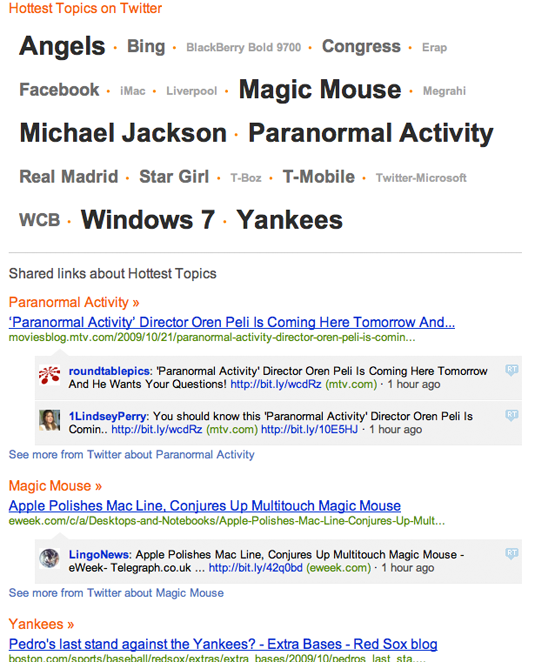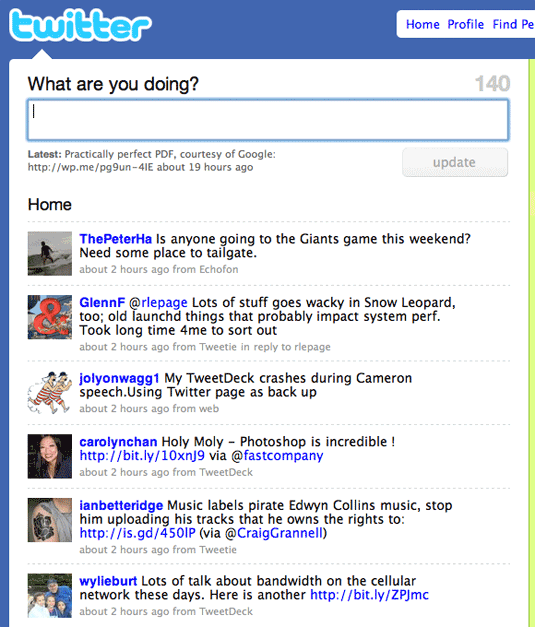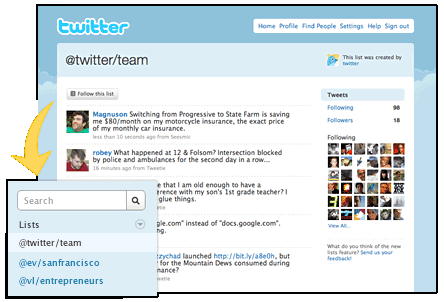Yesterday evening here at the Web 2.0 Summit, Twitter CEO Ev Williams sat onstage and confidently declared “Scalability today isn’t an issue for Twitter.” If so, the Failwhale is a big fat liar: When he appears, he’s accompanied by a message that “Twitter is over capacity” and that there are “Too many tweets!” And while the Failwhale is no longer the constant companion of Twitter addicts that he was for awhile last year, he’s been rearing his head frequently this week. Ads the Twitter status page explains:

 Um, sounds like scalability issues to me, even if they’re temporary!
Um, sounds like scalability issues to me, even if they’re temporary!
I understand that 100 percent uptime is an impossible dream, that even the the folks who know more than anyone in the world about providing robust Web surfaces have their periodic issues, and even that there are far more important problems in the world than occasional Failwhale sightings. But I’m still trying to make sense of Ev Williams’ statement. I’m assuming he didn’t mean to suggest that Twitter thinks its current level of reliability is as good as it gets. I’d love to hear Ev Williams or others at the company talk about why Twitter still chokes as often as it does, and what it’s doing about it. (Maybe the status message’s references to changes it’s making for “the future growth of the product” are a good sign.)
This morning at the conference, Facebook VP of Engineering Mike Schroepfer spoke about how how Facebook–which surely ranks among the most reliable major Web services-keeps on keeping on. Facebook’s a far larger company than Twitter, with more resources, more engineers, and more servers. But its predictability still makes for a striking contrast with Twitter. I choose to be an optimist: If Facebook can run like a top, so can Twitter. And maybe it will someday.
For the moment, I lump Twitter in with my cell-phone service–it works most of the time, but I’m not the least bit startled when it doesn’t….

 Did I just hear another shoe dropping? Shortly after
Did I just hear another shoe dropping? Shortly after  Back in July, Bing
Back in July, Bing 
 When something’s awry with Twitter, we’re used to seeing the
When something’s awry with Twitter, we’re used to seeing the 

 Facebook polls typically ask questions as mundane as “what’s your favorite breakfast cereal?” But over the weekend, a poll asking whether U.S. President Barack Obama should
Facebook polls typically ask questions as mundane as “what’s your favorite breakfast cereal?” But over the weekend, a poll asking whether U.S. President Barack Obama should 
 Twitter, the micro-blogging company with no fully-disclosed revenue model, has
Twitter, the micro-blogging company with no fully-disclosed revenue model, has 